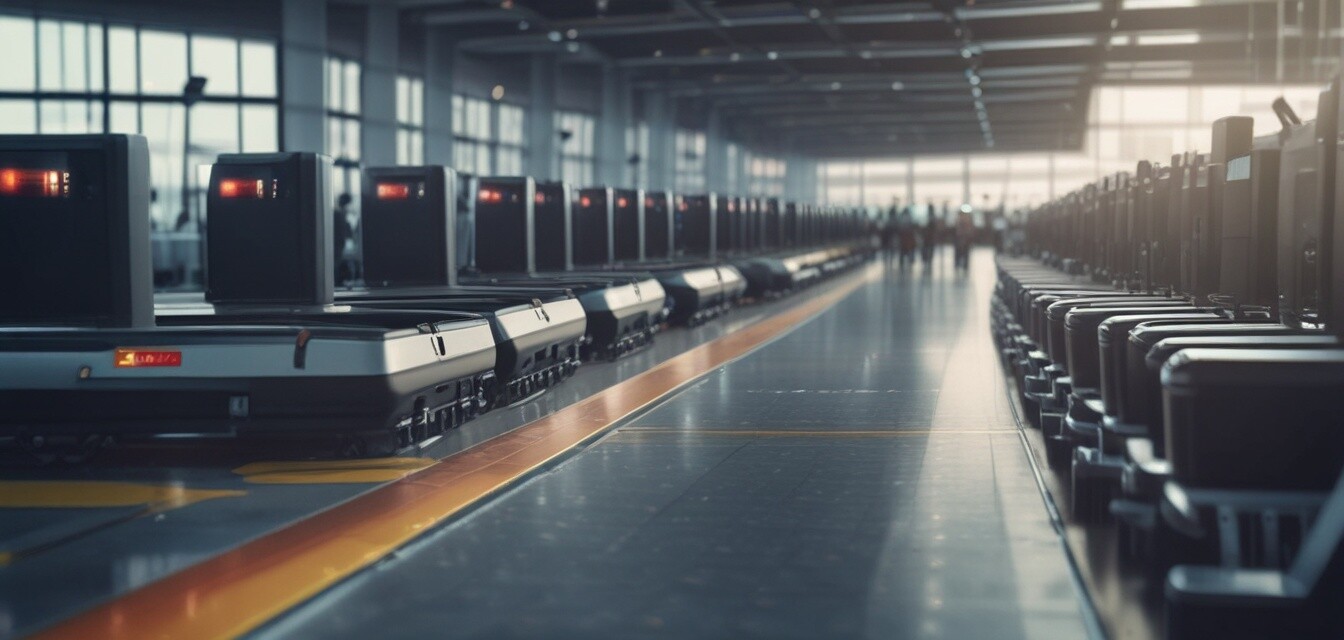
The impact of smart luggage on baggage handling
- Smart luggage enhances the efficiency of baggage handling in airports.
- GPS tracking reduces the chances of lost luggage significantly.
- Airlines benefit from streamlined operations and improved customer satisfaction.
- Emerging technologies are shaping the future landscape of travel convenience.
- Understanding these trends is crucial for travelers choosing the right luggage.
With frequent travelers increasingly seeking peace of mind regarding their belongings, smart luggage has emerged as a game-changer in the travel industry. As baggage handling practices evolve, it’s essential to explore how these innovations are affecting the airline sector and what they mean for travelers. In this article, we will delve into the impact of smart luggage on baggage handling and how it's influencing operations in airports worldwide.
What is smart luggage?
Smart luggage refers to travel bags equipped with technology, including GPS tracking, built-in scales, and even smartphone connectivity. These features provide travelers with a range of benefits, including real-time tracking of their luggage, monitoring weight, and accessing various functions via mobile apps.
How smart luggage is transforming baggage handling
Smart luggage is changing the way airlines handle baggage through the integration of advanced technologies. Here are some of the significant ways in which smart luggage is making an impact:
- Streamlined tracking: GPS-enabled luggage allows for precise tracking, reducing the instances of lost bags.
- Efficiency: Quicker identification of baggage reduces delays during check-in and retrieval.
- Improved communication: Airlines can easily communicate with travelers if their bags are delayed or re-routed.
- Data analytics: The use of smart luggage can help airlines analyze baggage flow and optimize operations accordingly.
Table: Traditional vs. Smart Luggage Baggage Handling
| Feature | Traditional Luggage | Smart Luggage |
|---|---|---|
| Tracking | Manual tags, no real-time updates | GPS tracking, real-time updates |
| Efficiency in retrieval | Often delayed due to misplacements | Faster retrieval with precise locations |
| Communication | Limited to occasional announcements | Direct updates to travelers via apps |
| Data use | Minimal data collection | Analytics for operational improvements |
The role of airlines and technology
Airlines are actively adopting smart luggage solutions, recognizing the potential benefits for both their operations and customer experiences. By integrating technology and systems, they can improve their baggage handling processes. Furthermore, understanding these changes is vital for travelers who want to make informed decisions about their luggage. Visit our Buying Guides for tips on selecting smart luggage.
Emerging trends in smart luggage technology
As technology evolves, so do the features available in smart luggage. Some of the noteworthy trends include:
- Battery integration: Many smart luggage options now have built-in chargers for electronic devices.
- Modular designs: Customizable compartments to better suit the traveler’s needs.
- Security features: Advanced locks that use biometric data to enhance protection.
- Real-time alerts: Notifications about baggage location changes directly to mobile devices.
The benefits of smart luggage for travelers
Investing in smart luggage can provide travelers with peace of mind and enhance their overall travel experience. Here are some notable benefits:
Pros
- Reduces the risk of lost baggage.
- Allows for quicker baggage retrieval.
- Improves traveler transparency and communication with airlines.
- Incorporates additional features like charging capabilities and smart compartments.
Cons
- Higher initial investment compared to traditional luggage.
- Dependence on battery life and technology reliability.
- May have regulations and restrictions on certain functionalities during flights.
What’s next for the smart luggage landscape?
The future of smart luggage looks promising as more advancements in technology emerge. As travelers become more technologically inclined and seek seamless travel experiences, manufacturers will continue to innovate. Keeping an eye on the News & Trends section can help you stay informed about the latest advancements in smart luggage technology.
Conclusion
Smart luggage holds tremendous potential for improving the baggage handling process, benefitting airlines and travelers alike. As new features and technologies become prevalent, travelers should embrace the opportunities such advancements provide for a more efficient and enjoyable experience. Remember to consider features that align with your travel needs when selecting your next piece of luggage.